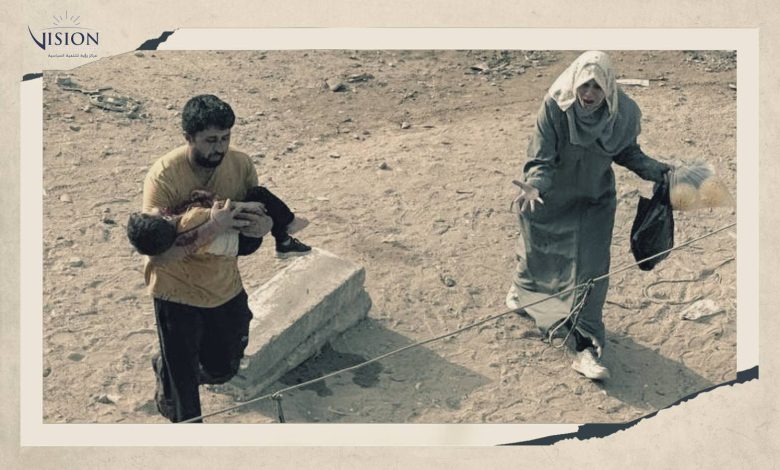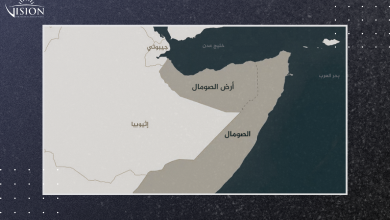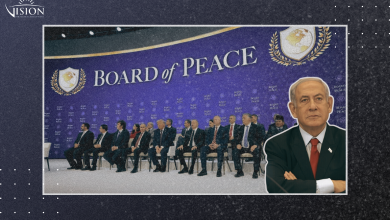The Ban on UNRWA: Context of a Strategic Project Implemented Over Decades

By Murad Abu Al-Baha
On Monday, October 28, 2024, the Israeli Knesset approved, in its third reading, a resolution banning the activities of the United Nations Relief and Works Agency for Palestine Refugees (UNRWA) within Israeli-controlled territories. The resolution prohibits the agency from operating any representative offices or delivering services, whether directly or indirectly, in areas under Israeli jurisdiction. The decision received overwhelming support, with 92 Knesset members voting in favor, while only 10 opposed it—primarily Arab parliamentarians. Additionally, the Knesset approved another resolution, in the same context, prohibiting official Israeli entities from engaging with UNRWA, which passed with a majority of 87 votes.
The Knesset’s decision to ban UNRWA coincides with an ongoing war in Gaza, waged by Israel for over a year, targeting all aspects of life, including UNRWA facilities where civilians sought refuge from indiscriminate bombardments. According to UNRWA statistics, over 70% of its schools in Gaza have been targeted by Israeli forces, and more than 207 UNRWA staff members have been killed in the Strip. Israel has accused the UN agency of being infiltrated by Hamas, alleging that many of the individuals involved in the October 7 attack were UNRWA employees. However, the agency rejected these allegations and refuted them in a detailed report titled “Claims vs. Facts,” which systematically responded to all accusations aimed at delegitimizing it. Despite this, Israel persisted in disseminating these claims on an international scale. This campaign led several Western countries to temporarily suspend funding to UNRWA until the Israeli allegations were verified. While many countries later reinstated their support, the United States—UNRWA’s largest donor—has maintained its suspension of aid, pledging to reconsider its position in March 2025.
Israel’s decision to ban UNRWA’s operations has been met with widespread international condemnation. The United Nations, through its spokesperson Stéphane Dujarric, denounced the resolution, emphasizing that it contravenes the UN Charter and international law, which Israel is obligated to uphold. UN Secretary-General António Guterres sent a letter to Israeli Prime Minister Benjamin Netanyahu, expressing profound concern over the implementation of this law. He underscored its significant violation of international law and Israel’s agreements with the United Nations. Additionally, countries such as the United Kingdom, Germany, Turkey, and others expressed their objections to the resolution, highlighting its severe humanitarian repercussions. Norway announced its intention to seek an advisory opinion from the International Court of Justice regarding the legality of Israel’s actions under international law.
UNRWA: Origins and Mandate
The United Nations Relief and Works Agency for Palestine Refugees (UNRWA) was established by a resolution of the United Nations General Assembly on December 8, 1949. Its purpose was to provide assistance to more than 700,000 Palestinian refugees displaced by Israel during the 1948 war. Today, the agency extends its services to approximately 6 million Palestinian refugees—descendants of those displaced in 1948. Statistics indicate that nearly two-thirds of the Palestinian population, approximately 10 million people, are refugees. However, the United Nations defined a specific timeframe for classifying those displaced during 1948 as legally recognized refugees.
UNRWA operates in five regions: Gaza, the West Bank, Jordan, Lebanon, and Syria. Its services include education for approximately 543,000 students across 709 schools, healthcare for nearly 2 million refugees, and social safety net support for around 400,000 individuals. Additionally, the agency provides humanitarian cash assistance to about 1.5 million refugees in these regions. Other services include university scholarships, primary healthcare centers, and environmental health services in Palestinian refugee camps, alongside other vital humanitarian programs.
The agency’s humanitarian role became particularly significant during Israel’s military assault on Gaza. Amid the absence of alternative structures capable of delivering humanitarian aid to Gaza’s 2.3 million residents, UNRWA’s extensive staff network managed to channel international humanitarian aid to the region. It also provided shelter to hundreds of thousands of civilians in its schools. Despite severe restrictions imposed by Israel on the agency’s operations and the frequent targeting and killing of its personnel—over 207 UNRWA employees have been killed—UNRWA remains the sole entity capable of maintaining minimal humanitarian efforts in Gaza.
The Ban and the Broader Strategic Context
Israel’s efforts to terminate UNRWA’s operations are not isolated but align with a broader strategy pursued by the state since its establishment. During the 1948 war, Israel undertook extensive demographic engineering through the mass displacement of Palestinians from their homes within the borders of the nascent Israeli state. During the conflict, Zionist militias forcibly displaced over 700,000 Palestinians—approximately 80% of the Palestinian population residing within what is now known as Israel.
A similar goal was pursued during the 1967 war, which resulted in Israel’s occupation of all Palestinian territories, leading to the displacement of another 200,000 Palestinians. The aim of demographic transformation remains central to Israeli policy today. Recent demographic reports from the end of 2023 indicate that the number of Palestinians within historic Palestine now exceeds the number of Israelis.
To achieve demographic change, Israel has employed various strategies, including economic strangulation, blockades, and devastating wars. During its recent war on Gaza, Israeli leaders explicitly expressed their intention to forcibly displace Gaza’s population beyond Palestine’s borders. Plans were also recently uncovered, reportedly drafted before the Gaza war, to relocate one million Palestinians from the West Bank to Iraq.
However, Israel’s demographic ambitions are unlikely to succeed as long as refugees’ legal rights to their identities and their return to their original homes are upheld. This right is reinforced by international institutions such as UNRWA, whose mandate, as per its founding legislation, is to provide humanitarian services to Palestinian refugees until a just solution is achieved. This solution, defined by UN General Assembly Resolution 194, centers on the refugees’ right of return and compensation.
Under international law, all states are obliged to recognize and cooperate with United Nations institutions, facilitating their operations. Thus, Israel’s goal of erasing the Palestinian refugee issue remains out of reach. As long as Israel is compelled to interact with UNRWA, it continues to implicitly acknowledge the existence of the Palestinian refugee problem and their rights—a reality that fundamentally contradicts the state’s demographic objectives.
The Israeli Knesset’s approval of the law banning the work of UNRWA involves multiple violations of international law. The resolution prohibits the agency’s work within the recognized borders of “Israel” by the United Nations and extends beyond those borders to include East Jerusalem, an area considered occupied and outside the sovereignty of the Israeli government, according to the United Nations. Moreover, the resolution contradicts international law, which obligates states to facilitate the operations of UN-affiliated organizations, provide immunity to their staff, protect their property and facilities, exempt them from local taxes, and ensure communication with their workers to facilitate their operations.
Nevertheless, “Israel” seems capable of bearing the consequences of these significant legal violations and the possibility of international condemnation to achieve the desired outcome of its long-standing strategy of displacing Palestinians. Israel believes that ending the work of the international agency could be feasible by restricting its activities, banning its operations, and prohibiting official communication with it. The agency’s work will become impossible if the Israeli government implements the Knesset’s decision. In the absence of the international agency dedicated to Palestinian refugees’ relief and humanitarian care, “Israel” would be able to bypass one of the most significant international legal barriers it has been compelled to contend with and proceed with the resolution of the conflict as envisioned by the ruling right-wing in “Israel.” The Palestinian refugee issue is central to the Palestinian cause, and eliminating the structure stemming from the largest international institution dedicated to their case and acknowledging their rights would contribute to the success of the Zionist movement’s efforts, founded on the concept of “a land without a people for a people without a land.” This vision cannot be realized without demographic transformation through displacement and by reducing the remaining Palestinians in their land to a mere minority living within the borders of a Jewish-majority state.
“Israel” has dealt with the United Nations Relief and Works Agency for Palestine Refugees (UNRWA) over the past decades and acknowledged its legal status for various purposes, including alleviating the direct economic, educational, and health burdens of the occupation toward refugees, particularly in the West Bank and Gaza Strip. Israeli researcher Eyal Offer, who identifies as a specialist in Hamas and Gaza affairs, has pointed out that this policy was mistaken. In an interview with Maariv, Offer argued that UNRWA sustains the concept of Palestinian refugeehood and the right of return by granting refugee status to new generations. He asserted that this has led to an increase in the number of refugees from 600,000 in 1948 to 5.6 million today. “Instead of improving their conditions, UNRWA perpetuates their status as refugees,” Offer said.
It is worth noting that one of the central historical disputes between UNRWA and “Israel” is the agency’s definition of Palestinian refugees, which includes their descendants. Israel insists on restricting the issue to the 700,000 individuals displaced in 1948 and reframe the problem as a shared crisis for both Jews and Arabs. According to Israeli claims, Jews were expelled from Arab countries and found refuge in “Israel,” which bore the burden of settling and integrating them. Hence, Arab states should do the same for Palestinians who sought refuge there, framing the issue as a population exchange akin to what happened between India and Pakistan or Turkey and Greece.
This narrative, however, is widely dismissed as baseless rhetoric. “Israel” actively sought to bring Jews to Palestine, even carrying out terrorist operations against them, such as the Farhud incident in Iraq, to instill fear and compel migration to Palestine. This stands in stark contrast to the case of Palestinian refugees.
In any case, with the rise of the notion of resolving the conflict and ending the Palestinian cause, the occupation and its intellectual proponents increasingly view the time as ripe to dismantle UNRWA, which they argue sustains the Palestinian refugee issue. Offer also stated, “A golden opportunity has now emerged for ‘Israel,’ where it can end the historical role of UNRWA and redefine Palestinians as non-refugees. Anyone with a permanent address—whether in Jordan, Gaza, the West Bank, or who has emigrated to the U.S.—should no longer be considered a refugee. It is time to confront the essence of Palestinian victimhood, namely the perpetual idea of refugeehood, which allows Palestinians to continue fighting against us and refuse to normalize their status in their places of residence… Thus, the conflict continues from one generation to the next, and all of this is due to UNRWA, which obstructs peace.” This perspective, along with the broader Israeli narrative, fundamentally denies the reality of the issue and the root cause of the problem, which lies in the ongoing occupation and its persistence.
With the outbreak of the genocidal war on Gaza and the subsequent discussions surrounding the “day after,” several Israeli research centers have begun proposing frameworks for what that day might entail. These proposals envision a future that Israelis hope will signify the formal conclusion of the Palestinian issue in its various dimensions, albeit under alternative terminologies.
Israeli researchers Kobi Michael and Gabi Siboni, in a paper published by the Jerusalem Institute for Strategy and Security, called for the dismantling of UNRWA as part of the “day after” arrangements encompassing both the West Bank and Gaza Strip. They argue that any political resolution with the Palestinians cannot occur without dismantling the two main pillars of the Palestinian national psyche: the right of return and the perceived legitimacy of armed struggle. Regarding the former, the researchers contend that all structures perpetuating Palestinian refugeehood must be dismantled, as this status has become an unprecedented global anomaly—defined by its permanence and uniqueness compared to other refugee crises worldwide.
They identify refugee camps and UNRWA as the foundations of this pillar, arguing that their existence serves no purpose other than to sustain the conflict and preserve the exceptional notion of Palestinian refugeehood. Within this context, the systematic Israeli military operations targeting Palestinian refugee camps in the West Bank—escalating both before and after October 7—align with this broader strategy, which has also extended to Gaza.
In parallel with its efforts to abolish the international framework for Palestinian refugee support embodied by UNRWA, Israel seeks to transfer the responsibility for Palestinian refugees to the United Nations High Commissioner for Refugees (UNHCR). Unlike UNRWA, which was established exclusively for Palestinian refugees, UNHCR deals with global refugee issues and has the mandate to resettle refugees as part of a solution—a power that UNRWA’s founding framework does not grant. By exploiting this distinction, Israel aims to shift the Palestinian refugee issue toward a resolution involving resettlement in other countries. These attempts align with decades of Israeli pressure on UNRWA, which has consistently maintained that it lacks the authority to propose political solutions to the refugee issue. UNRWA’s role, as defined, is limited to providing care and assistance until a just resolution is reached, in line with United Nations Resolution 194, which guarantees the refugees’ right to return and compensation.
Conclusion
The crux of the Palestinian issue lies in the plight of Palestinian refugees. The Zionist movement’s strategy, initiated with the forced displacement of approximately 80% of Palestinians during the 1948 war, remains central to Israel’s policies. Efforts to push Palestinians into emigration, whether through economic strangulation, oppression, or devastating wars, represent an integrated strategic project for the Israeli state. The demographic challenge persists as a core concern for Israeli leaders. The decision to ban UNRWA represents a crucial step toward realizing the objective of erasing the refugee issue by dismantling the international institution established explicitly to acknowledge the problem and provide relief until a just solution—centered on return and compensation—is achieved.
This Israeli willingness reflects a calculated prioritization of its strategic goal: reaping the benefits of its displacement policies that have persisted for over 75 years. By implementing this decision, Israel has taken a significant step toward ending the Palestinian refugee issue and advancing the resolution of the broader conflict—a vision championed by the ruling right-wing in Israel.





